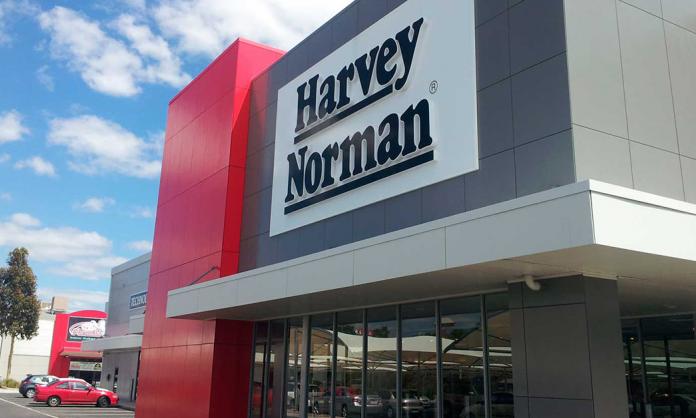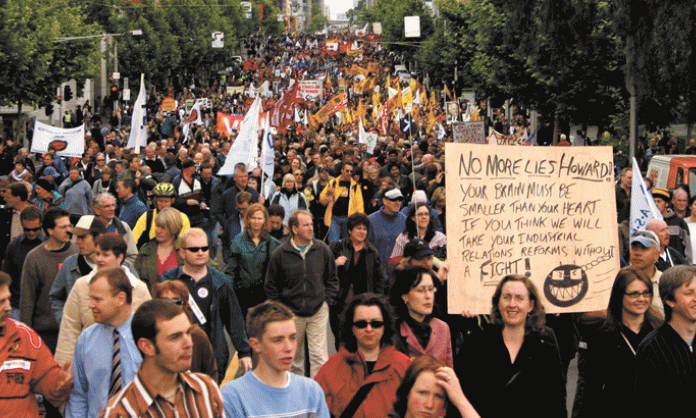“Workers are protesting outside Harvey Norman stores across the country today”, read an ACTU press release on 28 May. This would have been remarkable news if true. Finally, the ACTU and its constituent unions, in particular the Shop, Distributive and Allied Employees’ Association (SDA), would be leading an organised fight back of retail workers. Unfortunately, it was a lie.
There were rallies across the country outside Harvey Norman stores. From the photos, it’s evident that the bulk of attendees were officials from unions such as the SDA, the Transport Workers’ Union, the Australian Workers’ Union and some others. But the Harvey Norman workers were inside—working—and played no role in the demonstrations.
The rallies had nothing to do with solidarity. There is no campaign by the ACTU and the SDA, which organises most unionised retail workers, to organise Harvey Norman workers. The workers are paid according to the retail award, which is $21.78 an hour for a typical employee.
Meanwhile, their billionaire boss Gerry Harvey, who has refused to negotiate any union agreements in his stores, made off with a profit of $462 million last year, an increase of 116 percent during the pandemic. Harvey has refused to repay $22 million in JobKeeper payments his company received from the government despite these obscene profits.
Harvey is almost a comic book villain, and his employees have millions of reasons to fight. Yet the SDA leaders and their allies in the union bureaucracy have no strategy to empower Harvey Norman workers to resist. The rallies they organised outside his stores were essentially a publicity exercise in which the workers played no part.
The point was to try to embarrass Harvey over his opposition to any pay increase in the retail award, which the Fair Work Commission will decide before 1 July. Harvey Norman could have paid each of its employees tens of thousands of dollars in bonuses out of the company’s record profits. Instead, it wants to force workers to take an effective pay cut.
The SDA is compounding this perversity. The highly paid SDA bureaucrats who waved flags outside Harvey Norman stores support a model of “unionism” that is about signing deals with some of the country’s biggest parasite companies—such as the supermarket duopoly, most of the department stores and the biggest fast-food chains—over the heads of the workers.
SDA agreements have been supported by most of these bosses because they undercut award conditions, in particular pertaining to penalty rates for nights and weekends. As a result, hundreds of thousands of workers over decades have been paid less than the award. The irony is that Harvey Norman workers, despite being entirely at the mercy of a boss who makes Stalin look charitable, have not had their threadbare award conditions sold out by the SDA. This is the reason the company is being targeted by the ACTU, and not Woolworths, McDonald’s or Bunnings, which maintain agreements with the SDA.
All of this shows what a dire state the union movement is in. What Harvey Norman workers need—and what retail workers, teachers, front-line health workers and all other workers need—is a genuine worker-led fight back. This would involve unions proceeding from the bottom up, organising in workplaces to empower workers to fight for their most basic rights, which the bosses are trampling in the wake of the pandemic.
Millions of workers have a stake in the annual increases handed down by the Fair Work Commission, but the union leaders’ strategy rules out trying to mobilise them. Doing so might start to encourage those workers, including many working under SDA agreements, to begin to understand that their interests lie in class struggle rather than class collaboration.
All the unions that aid and abet the SDA strategy of collaborating with those bosses willing to work with them to undercut workers’ rights are both betraying workers and contributing to the increasing weakness of the union movement.
Duncan is a unionist employed by a large retailer with an SDA agreement.









